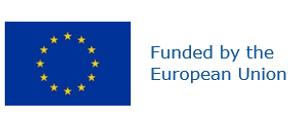NeuroMOF: Self-propelled Metal-Organic Framework nanocarriers as promising brain delivery platform
The blood-brain barrier (BBB) severely constrains drug delivery to the brain, limiting the treatment of neurological diseases. Despite the significant progress of current nanomedicines, their clinical application is limited by the lack of effective in vivo delivery platforms. To cope with this challenge, NeuroMOF proposes the development of a biosafe and efficient tailored drug delivery system (DDS) based on nanoscaled porous Metal Organic Frameworks (nanoMOFs) for brain delivery. To achieve this goal, two original targeting strategies will be undertaken to pass through the BBB: targeting by external functionalization with BBB-specific ligands & enzyme immobilization known as MOF targeting & MOF motion (self-propelled nanomotors), facing up the challenge to control the orientation, stability, density and distribution (symmetric/asymmetric) of the surface agent. The most promising nanoMOF prototypes will be selected based on the outcomes achieved on the biodistribution, biocompatibility and bioactivity assays performed on in vitro and in vivo BBB models.
To reach the challenging objective, a collaboration has been implemented between the IMDEA Research group of Advanced Porous Materials Unit (APMU), led by P. Horcajada and recognized as expert in the synthesis, characterization and bioapplication of nanoMOFs and the Molecular Bionics Labs, led by G. Battaglia (University College London-UK and IBEC-Barcelona Spain) in which specialists worked on the design and evaluation of chemotactic delivery systems to cross the CNS barriers by using adapted in vitro and in vivo BBB models. Dr. Tania Hidalgo, as MSCA fellow, will achieve 3 secondments in this latter laboratory in order to perform in vitro and in vivo assays.
This highly innovative research will open new avenues for the bio & technological application of nanoMOFs, promoting the development of innovative approaches for targeting more effective neurological therapies.
Investigators: Tania Hidalgo (Fellow) & Patricia Horcajada (Supervisor)
Hosting/Supervisor Secondment: Molecular Bionics Lab, University College London (London, UK) & Institute for Bioengineering of Catalonia (Barcelona, Spain)| Supervisor: Giuseppe Battaglia.
Funding Institution/Program: This project has received funding from the European Union’s Horizon 2020 research and innovation programme under the Marie Skłodowska-Curie grant agreement No 897678.
Call: Marie Skłodowska-Curie Individual Fellowships (H2020-MSCA-IF-2019)
Type of action: Standard European Fellowships (MSCA-IF-EF-ST)
Period: July 2021-June 2023



